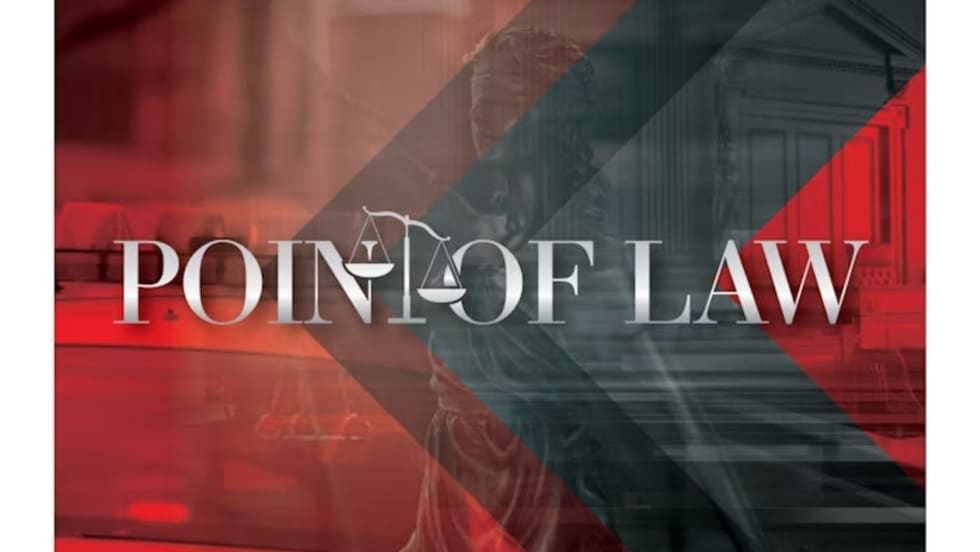The case I’ll be discussing in this article started off as a regular traffic stop with the suspect remaining cooperative, until things took a sharp turn for the worst.
It involves use of force, so let’s review Graham v. Connor.
A Texas officer was sued after he shot and killed a man who fled a traffic stop with the officer clinging to the Vehicle. Was he entitled to qualified immunity?

The case I’ll be discussing in this article started off as a regular traffic stop with the suspect remaining cooperative, until things took a sharp turn for the worst.
It involves use of force, so let’s review Graham v. Connor.
In Graham v. Connor, the Supreme Court held that, in evaluating whether an officer used excessive force, courts must consider:
1. The severity of the crime at issue;
2. Whether the suspect poses an immediate threat to the safety of the officer or others; and
3. Whether the suspect is actively resisting arrest or attempting to evade arrest by flight.
In addition, when an officer uses deadly force, the threat of harm posed to the safety of the officer or others is generally the dominant factor in a court’s analysis.
Another factor at play in this case is the speed at which force is used. It is important to note here that while speed of force can be debated when arguing reasonableness, the real thing that is debated is whether you have time to de-escalate a situation or time to talk to a suspect. In many cases force happens when there is a dire situation happening during a very fast timeframe, such as in today’s situation.
The Case
A City of Arlington (TX) police officer pulled over O’Shea Terry and his passenger, Terrance Harmon, for driving with an expired registration tag. The officer approached the large SUV and asked the men for identification. After taking their information, the officer advised Terry and Harmon that she smelled marijuana coming from the car and, as a result, had to search it.
In the meantime, Officer Bau Tran arrived on the scene and approached the SUV from the passenger’s side next to a curb. While the first officer went back to her patrol car to verify Terry’s and Harmon’s information, Officer Tran waited with the two men.
When Officer Tran asked them to lower the windows and shut off the vehicle’s engine, Terry complied. However, after some small talk, Terry started raising the windows and reaching for the ignition. Officer Tran immediately shouted, “Hey. Hey. Hey.” stepped onto the running board of the SUV, and grabbed the passenger window with his left hand. Officer Tran reached through the passenger window with his right hand and yelled, “Hey, stop!” Officer Tran then removed his right hand and rested it on his holstered pistol.
At this point, Terry started the SUV and shifted into drive. Just after the SUV lurched forward, Officer Tran drew his firearm, stuck it through the open window past Harmon’s face, and shot five rounds, striking Terry four times. Terry lost control of the SUV, which crossed the opposite lane, and jumped the curb. The force of the SUV hitting the curb knocked Officer Tran off the SUV’s running board and onto the street. As Officer Tran rolled over the asphalt, the SUV’s rear tires almost struck him. Harmon managed to gain control of the SUV, got it back on the street, and stopped it. Terry died later at thehospital.
District Court
Terry’s estate sued Officer Tran under 42 U.S.C. § 1983 for excessive use of force in violation of the Fourth Amendment. Terry’s estate also sued the City of Arlington, alleging that the city was liable for Officer Tran’s use of excessive force. Finally, Harmon claimed that Officer Tran violated his rights by shooting Terry and thereby unlawfully seizing the entire SUV.
The district court held that Officer Tran was entitled to qualified immunity and dismissed all claims against him as well as the city. The plaintiffs appealed.
The Appeal
After reviewing the factors laid out in Graham v. Connor, the Fifth Circuit Court of Appeals also recognized that its cases have held that “an officer’s use of deadly force is not excessive, and thus no constitutional violation occurs, when the officer reasonably believes that the suspect poses a threat of serious harm to the officer or others.”
In this case, the court held that it was completely reasonable for Officer Tran to believe that he was in danger while he was clinging to the accelerating SUV. The court concluded that common sense dictated that falling off a moving vehicle onto the street can result in serious physical injuries. In addition, as Officer Tran tumbled across the asphalt, the SUV’s rear tires nearly ran him over. The fact that this near miss occurred after Officer Tran shot Terry was irrelevant, as it confirmed that Officer Tran could reasonably perceive a serious threat of harm as Terry drove away with him holding onto the SUV. The court also noted that in previous opinions it had recognized the obvious threat of harm to an officer on the side of a fleeing vehicle.
The plaintiffs tried to argue that Officer Tran’s use of deadly force was unreasonable because he could have stepped off the running board and let Terry drive away. Citing Graham, the court commented that the threat of harm to the officer must be “judged from the perspective of a reasonable officer on the scene, rather than with the 20/20 vision of hindsight.”
The court also rejected the plaintiffs’ argument that Officer Tran shot too quickly, about a second after the engine was engaged, for his use of deadly force to be reasonable. The court found that the speed with which an officer uses force can factor into the reasonableness analysis, but the court stated that this only applies in situations where officers “deliberately and rapidly” forgo lesser responses “when such means are not only plainly available but also obviously recommended by the situation.” In this case, even though he ordered Terry to stop reaching for the ignition, Officer Tran had absolutely no time to deescalate the situation or discuss options with Terry before he began driving.
The court further held that the plaintiffs failed to identify any clearly established law that states that it is unreasonable for an officer to use deadly force when he or she is suddenly an unwilling passenger on the side of a fleeing vehicle. The court of course held that Officer Tran was entitled to qualified immunity and because the court found that Officer Tran committed no constitutional violation, the court then affirmed the district court’s dismissal of the lawsuit Harmon filed against the city.
Safety Note
While Officer Tran luckily walked away from this situation unharmed, it is never my recommendation to hang on to a moving vehicle. I have known too many officers who have been seriously injured during a situation like this one, where they are holding onto a moving vehicle and they get dragged across the pavement. The original officer on the scene had the license plates and the suspects’ IDs, so while it may seem frustrating to let a suspect go, please do so to keep yourself safe. You’ll catch up with them later.
Eric Daigle is founder of Daigle Law Group, LLC, a firm that specializes in law enforcement operations. A former Connecticut State Police officer, Daigle focuses on civil rights actions, including police misconduct litigation. He is a legal advisor for police agencies across the country and a member of the POLICE Advisory Board.

Can an individual be prosecuted for despicable criminal conduct based on evidence obtained in violation of the United States Constitution? Ultimately, the Ninth Circuit judges wrote, “In the circumstances of this case (United States v. Holcomb, 23-469 (9th Cir. 2025)), respect for the Constitution and the rule of law requires an answer of “no.”
Read More →
<strong>“</strong>Cashless bail policies allow dangerous individuals to immediately return to the streets and further endanger law-abiding, hard-working Americans because they know our laws will not be enforced,” the administration said.
Read More →
The DOJ said in a press release that the “sanctuary city” policies of the City of Los Angeles are illegal under federal law.
Read More →
Officers can be criminally prosecuted for using force when their actions led to escalation during contact with subjects.
Read More →
In the Tenth Circuit case of Cuervo v. Sorenson, the Court ruled officers cannot deviate from the language of the warrant.
Read More →
The Civil Rights Division will be taking all necessary steps to dismiss the Louisville and Minneapolis lawsuits with prejudice, to close the underlying investigations into the Louisville and Minneapolis police departments.
Read More →
House Bill 4404 would create a presumption of civil immunity for individuals who are cleared criminally after using force in self-defense, shifting the burden of proof onto plaintiffs.
Read More →
Seattle police Capt. Eric Greening sued former Chief Adrian Diaz last year alleging that Diaz retaliated when Greening brought up concerns about racial and gender discrimination.
Read More →
Jim Leighty, a local activist, filed two federal lawsuits last year claiming both agencies deleted or hid critical comments he had written below multiple posts, while keeping comments that were pro-police in nature.
Read More →
The lawsuit claims the Adams County Sheriff’s Office has illegally held people in custody based only on their immigration status, helped federal agents question people in custody, and given immigration officials confidential personal information.
Read More →